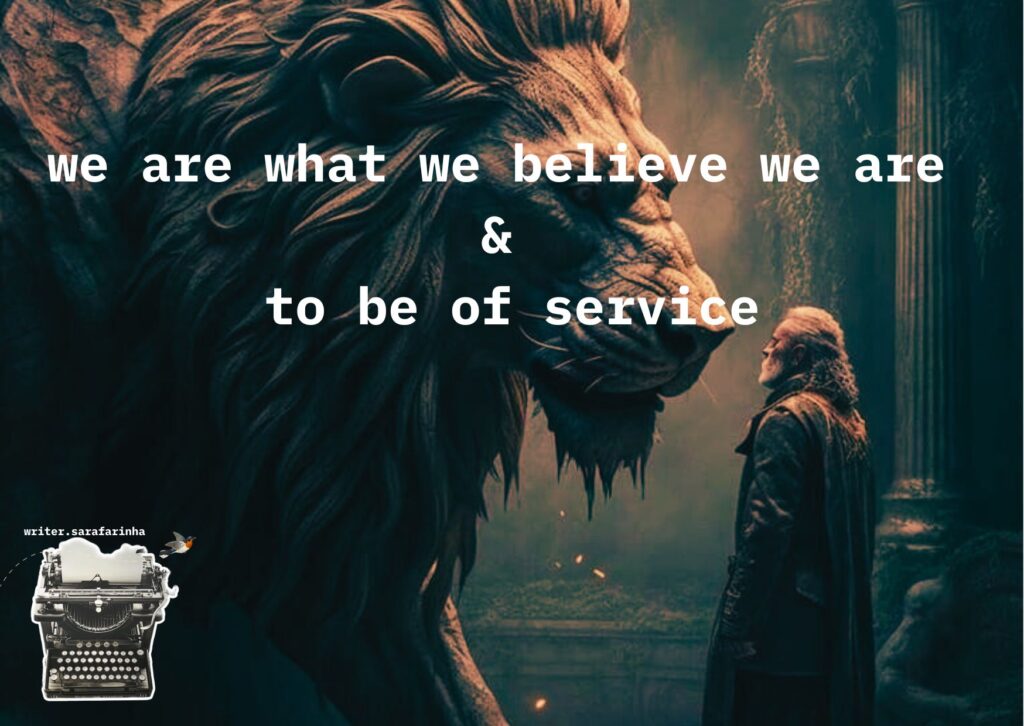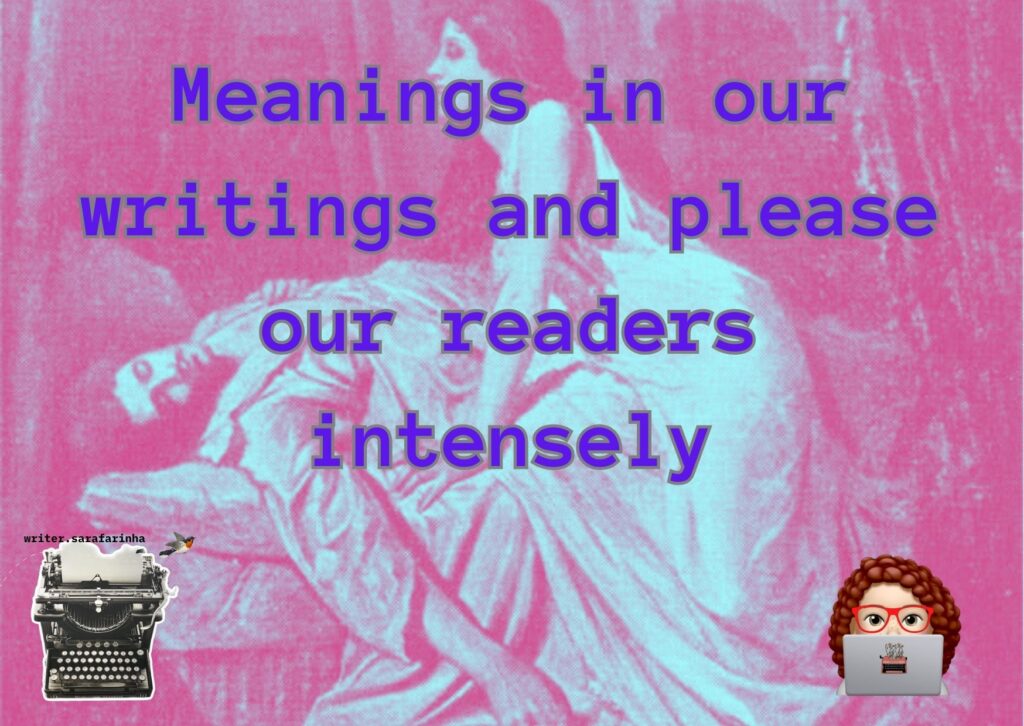
Hello all! Welcome back to this blog.
Wondering about what means to be a writer seems to be part of this thing that I have chosen to be.
We choose and we become that which we have chosen. Even if it seems a dream. Even if it doesn’t seems feasible. Even if it’s so damn hard to do.
But the Truth is, if we choose to do it, an put in the actions to have it, we are it.
This argument is part of a few books. Works about the writing craft, books by those who struggled in the pursuit of this work, even philosophical, and religious spokespersons believe firmly in this idea: We are what we believe ourselves to be.
It took me a while to understand it.
After all, we are told that, it is through outside validation of our work, through making money with it, that we believe ourselves to be validated in our choices.
But should it be? Are we what we believe we are?
Is it not by doing the work itself that we become professionals? Is it not by writing that we become writers?
Is it not that by writing, I become a writer? That I am what I believe myself to be?
This is a rationalisation that I find myself drawn to, for the good and the bad parts of it.
Good because we feel that we are something, and feel proud by being it, getting ourselves more motivated to pursue it.
It’s kind of fulfilling our dream without actually having the solid proofs to back it up, but building the structural base as we go along.
Bad because, if we are not willing to put the work in, we end up convincing ourselves that we have already achieved it, we are already writers, and we want what is due to us… without actually becoming the thing that we want to be. Without actually Writing and learn to write.
Quoting from the already mentioned poet Jacqueline Suskin:
“What it means to be a writer in this day and age?”
Jacqueline answers this for herself with the following words:
“My job is to be in service as a writer, and my specific outlet is this kind of accessibility, this thing that I can write for anyone. I can write a poem for any type of person.” – in The Poem Store: A Life Changer | Jacqueline Suskin | TEDxSouthPasadenaHigh
It’s not without great effort that we try to find our own answer to this question. Specially if we consider all the writing-for-hire and AI-knock-off’s out there.
I know I keep searching for my particular answers.
What does it mean to me to be of service? What does it mean to be a writer? What can I consider Writing?
I do write loads of blog posts. Are they, in due legitimacy, Writing? – is one of my most asked questions.
This reminded me of…
I have served. I will be of service.
in John Wick: Chapter 3 Parabellum
… and it’s kind of like that, isn’t it?!
We have served by writing. We will continue to be of service by writing. We might find other venues that support our writing efforts. We might teach, perform, add other means to one’s end. But we will be contributing through Writing.
Each one of us have to find our own answer to what means to be of service to mankind.
What means to be of service to people? What means to contribute to this big, huge, world of ours?
And how our own experience will provide something for others to discover their own questions and answer them.
For me, it’s being here, writing my way through books, articles, poems, short-stories, videos, notes, journalling and all that brings this activity alive.
For me, it’s to provide entertainment, to pass inspiration along, to connect and feel connected, to share my journey and hope it will be useful for other’s pursuit.
To be of service is to serve our passions. So that, through them, we may be here for someone else. We may be here, and let them know that they are not alone.
We believe so we can serve, and that is what has some chance to make a difference in this weird world.
***
Please leave a comment and subscribe for more content.
Bye and Keep writing! ✍🏼
***
References:
